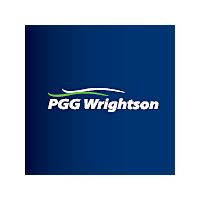
VETMED drenches boost Glenure Station's animal health plan
Frazer Allan has lived and breathed farming his whole life. Having taken over the family farm Glenure Station from his parents, Frazer now works alongside his wife Karen and one of his three children, Ben.
Located near Balfour in Southland, Glenure Station is a sheep and beef farm set on 830 ha. The land varies from flat to rolling, to tussock hills. On the flat land, the Allan’s cropping programme includes winter crops, kale and swedes, which are rotated with a ryegrass mix. Another two paddocks are used to produce baleage – whole crop, barley and peas.
Glenure Station runs 4,300 Peters Genetic Romneys, 50 South Suffolk stud ewes, 400 Texel ewes, 1,350 hoggets, 50 replacement heifers and 230 breeding cows which are predominantly Charolais with the remainder Hereford Angus.
Lambing terminal ewes in late August to early September, followed by MA ewes and 2 tooths, Frazer comments it went well this year, tailing 7,370 lambs. Last season, they sold 5,900 trade lambs once they reached 19 kg carcass weight which they aim to do this year.
Ask Frazer about his Charolais cattle and he shares they are a profitable part of his business, having topped the calf sales at Castle Rock for the past 40-odd years. “We achieve good weights with our steer calves weaning at over 300 kg while our heifer calves are in demand too.”
Well-considered decisions about breeding have led to further successes. Introducing Peters Genetic Romneys has lifted the lambing percentage from 130 percent to now being consistently over 150.
With the farm located on the Hokonui Hills, Frazer points out there are a lot of south faces that deliver challenging weather with storms often occurring during lambing. In summer, it is dry but does not reach drought conditions. “To help manage the dry weather over the past couple of seasons,” says Frazer, “we have sold 500 to 600 store lambs to lower the demand on feed.”
Frazer is always mindful of the potential for drench resistance developing on the farm and considers this when planning their animal health programme. He seeks the advice of his PGG Wrightson Technical Field Representative Jeff McFarlane.
Having completed a drench resistance test showing no known resistance on-farm to date, the Allan’s are confident their animal health programme is working well. They use VETMED drenches to control internal parasites along with using VETMED’s Cyromax Liquid to prevent blowfly strike.
Their drench programme includes the triple combination drench, Triplemax Oral, which provides an effective way of controlling intestinal roundworm species in their sheep.


A low-dose drench, Triplemax Oral is ideal for lambs says Frazer. “It is easy to use as we are not trying to put 8 to 10 ml down a lamb, but rather 4 ml for a 40 kg lamb. We drench our fattening lambs every 28 days for effective roundworm control while our ewe lambs are only drenched if it is needed.”
The Allan’s use Cyromax Liquid, applying it to the lambs through a jetter at weaning. “Cyromax gives good protection when it is applied correctly. Its length of protection is a real plus; we get through to February when we shear the lambs without having to deal with any of the health issues that arise from blowfly strike.”
Frazer says the 14-day meat withholding period of Triplemax Oral suits their farming system, and Cyromax Liquid also has a short 7-day meat withholding period.
“When we weigh and take a draft of our lambs,” says Frazer, “we drench the remaining lambs and do not bring them back in for four weeks, so well outside the withholding period.”
Based out of the Lumsden PGG Wrightson store, Jeff has worked alongside the Allan’s for over 15 years. Along with Jeff’s support on-farm, the Allan’s visit the Lumsden store regularly to purchase all their farm products.
Frazer says Jeff has a wealth of knowledge to share. “Jeff is there when we need him to discuss what’s happening on the farm. You can’t beat the level of experience he has. With PGG Wrightson, if Jeff does not know something, he can pick up the phone and get an answer quickly, so we never have to wait long for a solution.”
Frazer acknowledges that it makes life a lot easier having Jeff across all parts of his business with Jeff organising their seed and monitoring the crops. Jeff also recommends a spray programme and advises them on the best time to spray the crops.
Registered pursuant to the ACVM Act 1997, Cyromax Liquid #A011382 and Triplemax Oral #A011076. Always read the registered label before use.


